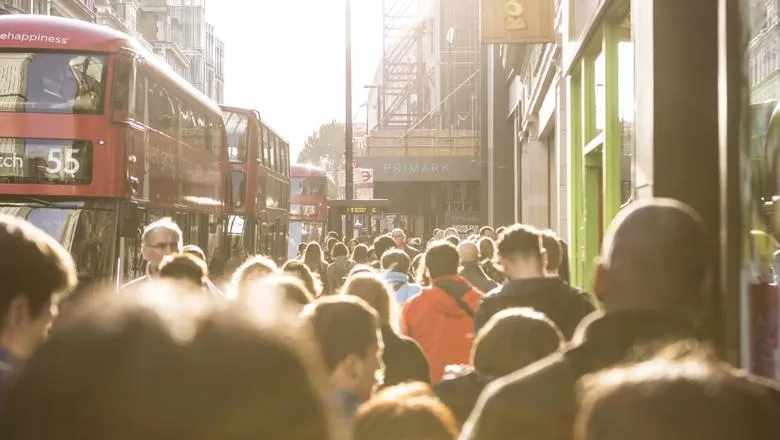This report shows what can be achieved when we listen to individuals and communities about what matters to them, and how to translate their ideas and insights into meaningful progress.
Sadiq Khan, Mayor of London
21 February 2020
Listening to Londoners about mental health
A new report highlights local actions taken to improve mental health and wellbeing following community conversation workshops in 2018

The Londoners did report outlines the actions taken by Londoners and public health officials following community conversations in 2018, leading local change, breaking down barriers and developing social networks to improve mental health and wellbeing.
The report was authored by Ed Davie as part of his Masters in Public Health at King’s, and has been released by Thrive LDN in partnership with the Mental Health Foundation.
Follow-up interviews and research have highlighted many examples of local efforts and community-based interventions following the community conversation workshops, which are supporting people across London to build strength and resilience.
The report found that the main impacts of community conversations included:
- The Thrive Thamesview mental health improvement pilot scheme, commissioned by the London Borough of Barking and Dagenham, which supported around 400 residents to improve relationships, skills and confidence, with delivery costing less per person than three months of anti-depressant medicine.
- Informing work developing the commmunity, council and NHS integration effort in Lambeth, also supporting the Black Thrive improvement partnership between the borough’s Black Caribbean and African residents and statutory services.
- Convincing leaders in Enfield to ensure new developments create mentally and emotionally healthy places.
- Closer collaboration between public health officials and planning officers in Hackney during the development of plans for a replacement leisure centre. The new Britannia Leisure Centre is currently under construction, and will create high quality community space.
- Supporting improved mental health support for black residents in Lewisham, advancing the council's work with those currently suffering disproportionately poor outcomes.
- Sutton’s Fairness Commission was changed to include recommendations on how to better support children and young people from deprived backgrounds to achieve their potential.
The Mayor of London Sadiq Khan welcomed the report, and the efforts of those working to make London a happier, healthier city.
He said: 'Londoners know better than anyone else what’s important to them, and what’s happening in their neighbourhoods, their workplaces, their schools, and their homes. They know the type of local interventions that will have the greatest impact, and, for that reason, they are best placed to codesign and lead on solutions to their problems.
Poor mental health is one of the biggest challenges facing London and prevalence is often much higher in communities facing greater inequalities.
Londoners outline that whilst the capital offers a wealth of opportunities for people to lead healthy and happy lives, living and working in the capital can present various challenges and issues which can impact on mental health and wellbeing.
I’m thrilled my King’s College London and Mental Health Foundation research is reaching a wider audience to support positive change. Studying at King's taught me that scientific research and community involvement should work hand-in-hand to make a meaningful difference to people. The Thrive LDN Community Conversations shared scientific and community knowledge, and inspired people to make that difference for themselves and with their services.
Ed Davie, report author
To find out more about the Londoners did report or the How do we #ThriveLDN? campaign, visit www.thriveldn.co.uk.
